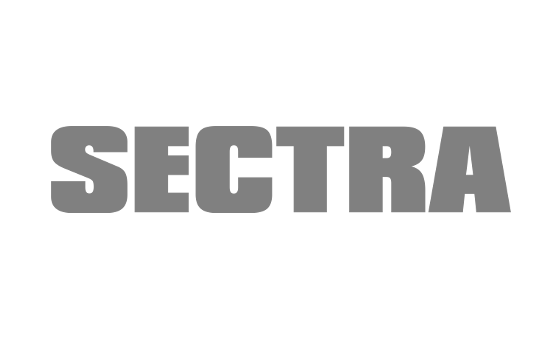 A new region-wide approach to analysing x-rays, MRI scans, CT scans, mammography, and an entire range of crucial diagnostic images, has started to become reality, now that The Pennine Acute has become the first of eight trusts across Greater Manchester to deploy state-of-the-art medical imaging technology.
A new region-wide approach to analysing x-rays, MRI scans, CT scans, mammography, and an entire range of crucial diagnostic images, has started to become reality, now that The Pennine Acute has become the first of eight trusts across Greater Manchester to deploy state-of-the-art medical imaging technology.
Healthcare professionals at the trust have begun using a new enterprise imaging solution to benefit patients only weeks after the Greater Manchester Provider Federation Board signed a landmark contract with medical imaging IT and cybersecurity company Sectra in October 2020.
The agreement represents one of the largest imaging initiatives of its kind in the NHS and anywhere in Europe.
This news at Pennine Acute is seen as the first steps taken in an initiative that will transform the way patients are diagnosed and treated.
Known in the NHS as a PACS - or picture archiving and communication system - the imaging solution is used by hospital staff to interrogate patient images digitally. The new PACS replaces ageing IT and is already delivering immediate benefits to staff such being able to view and report on detailed images remotely, including from their home. In the case of surgical scenarios, 3D orthopaedic tools will allow staff to virtually reconstruct joints prior to procedures. And the system is expected to transform how multi-disciplinary teams function.
Elaine Quick, Greater Manchester's PACS implementation lead, said: "I am really impressed with how teams across the trust have worked with our partner Sectra to get this in place quickly whilst simultaneously dealing with the challenges presented by Covid-19 and winter pressures in the NHS. This first go-live is the start of the main journey. We will be able to maximise how our staff work across different trusts and we will be able to connect 15 years' worth of rich data currently isolated in individual trusts."
The biggest wins from the initiative are expected as an accelerated delivery programme expands the new PACS and an accompanying multimedia system known as a vendor neutral archive (VNA), both supplied by Sectra, across Greater Manchester.
Once live and rolled out in more hospitals, clinical staff will be able to instantly access patient images captured at any of the participating NHS trusts in the region. This will support healthcare professionals making decisions at the point of care and help staff carrying out reports used to inform diagnoses.
The programme paves the way for better and faster access to the scarce expertise and faster diagnoses for 3.2 million people across Greater Manchester at a time of national staff recruitment challenges in specialist disciplines like radiology.
David O’Brien, divisional managing director for imaging, said: "This is an important project for everyone - from frontline staff, through to patients whose care this is ultimately about. Hospitals in Greater Manchester will overcome inter-organisational limitations around image sharing and collaboration. Radiology demand has increased massively in recent years and continues to do so. Working as a network will help us to respond to this demand, and ensure our professionals' expertise is available for everyone in the region. In the future, the programme will allow us to embrace new and emerging tools like artificial intelligence, and in the short term it is allowing radiologists to continue working from home at a crucial time."
Suraj Amonkar, consultant radiologist and PACS clinical lead for Pennine, said: "Radiology is pivotal in patient care management. Sectra provides us with a powerful, thoroughly up-to-date PACS system that has many advanced features that will result in quicker and more accurate diagnostics, and ultimately better patient care. The integrated Multi-Disciplinary Team meeting (MDT) module will benefit oncology patients, whilst the teaching features will help train the next generation of radiologists, radiographers and sonographers. It works well with our existing digital patient record systems, and with a zero footprint viewer is easily accessible to clinicians delivering frontline care. We look forward to exploring its huge potential."
Pennine Acute consists of hospitals in Oldham, Bury, Rochdale and North Manchester. The Oldham, Bury and Rochdale sites are managed along with Salford Royal NHS FT as the Northern Care Alliance. The North Manchester site is managed as part of the Manchester University NHS Foundation Trust Group.
Other hospitals that will benefit as deployment continues at pace over the next year, include:
- Bolton NHS Foundation Trust
- The Christie NHS Foundation Trust
- Manchester University NHS Foundation Trust
- Salford Royal NHS Foundation Trust (part of the Northern Care Alliance NHS Group)
- Stockport NHS Foundation Trust
- Tameside and Glossop Integrated Care NHS Foundation Trust
- Wrightington, Wigan and Leigh NHS Foundation Trust
Jane Rendall, managing director UK and Ireland at Sectra, said: "Greater Manchester is delivering fast on its determination to get modern tools and crucial information to the people that need them. Diagnostic imaging is a crucial part of patient care. For the millions of people covered by this new programme, the first steps have been taken in an initiative that will transform the way they are diagnosed and treated."
About the Northern Care Alliance NHS Group
The Northern Care Alliance NHS Group brings together four hospitals, specialist and acute services, a range of associated community healthcare services, and over 20,000 staff across Salford Royal NHS Foundation Trust and The Pennine Acute Hospitals NHS Trust.
About Sectra
With more than 30 years of innovation and approaching 2,000 installations worldwide, Sectra is a leading global provider of imaging IT solutions that support healthcare in achieving patient-centric care. Sectra offers an enterprise imaging solution comprising PACS for imaging-intense departments (radiology, pathology, cardiology, orthopaedics), VNA, and share and collaborate solutions.